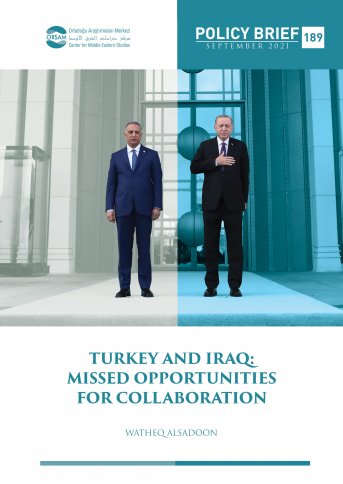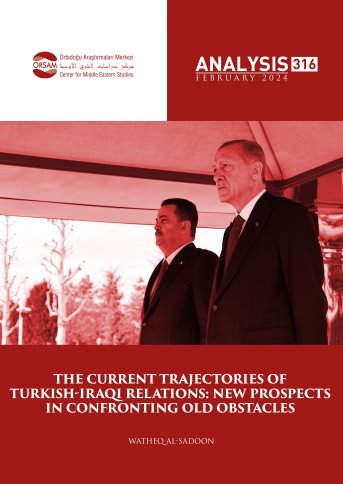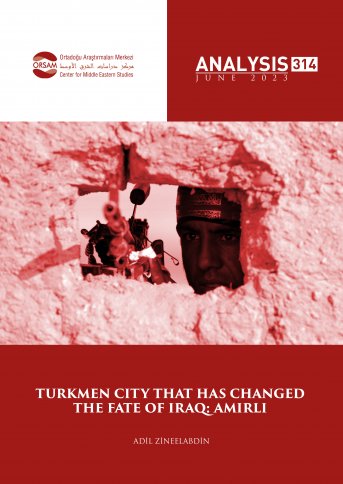
Turkey and Iraq: Missed Opportunities for Collaboration
Since the establishment of Iraq in 1921 and Turkey in 1923 as modern states, relations between the two countries have been based on two main routes. Even though there are many ties, such as religious and social ties, neighborhood and common history, and the problems between the two countries are limited, these two routes are dominant. One of these routes is shaped within the framework of “traditional” cooperation, while the other is formed by “limited” conflicts that lead to the freezing of relations. The relations between the two countries did not turn into an advanced level of strategic cooperation, but they did not cause direct conflict either.
Over the decades, the two countries have had equal responsibility for missing out on the opportunities to establish political, security, and economic cooperation and coordination. Had they taken advantage of these opportunities, both the Iraqi and Turkish people would have gotten great benefits, and this would have helped both countries avoid many problems and crises. Iraq and Turkey are important to each other because while Turkey has the source of water, which is the "sine qua non" element for Iraqis, Iraq is Turkey's gateway to the Gulf.
What would be the best way to break this stagnation in modern Iraq-Turkey relations? What would be the manner to break the vicious circle between the two countries that has not been resolved for decades: by resurrecting the same problems, repeating mutual accusations, and keeping using the same unsuccessful approach to the problems they encounter? How can they avoid missing out on productive cooperation opportunities? How can they develop new visions and improve relations between them? This article discusses the factors affecting the relations between the two countries, their various dimensions, current interactions and future expectations. It tries to find answers to these questions by offering suggestions for unresolved issues and improving relationships as much as possible.
Respected readers may find that this article has a very positive tone and calls for rapprochement between Iraq and Turkey. Maybe some readers might think that the positive approach is exaggerated. Some others may have the prejudice that the article favors Turkey, since the writer of the article is an Iraqi citizen residing in Turkey and working at a Turkish research center. It should be normal and acceptable to have such a difference in thoughts and opinions. We believe that it will not do any harm to call for rapprochement and cooperation between countries and peoples for the sake of common interest, and to ignore competition and differences, instead of deepening conflicts and fueling provocations that no one will gain and the opinions presented in the article serve not only the interests of Turkey, but also the common interests of Iraq and Turkey. In the world of tensions and crises, giving priority to the conflicts and mutual accusations means choosing the easy way out. On the other hand, the search for establishing an environment of peace, harmony and cooperation between countries on the basis of common interests poses a great challenge in itself.







